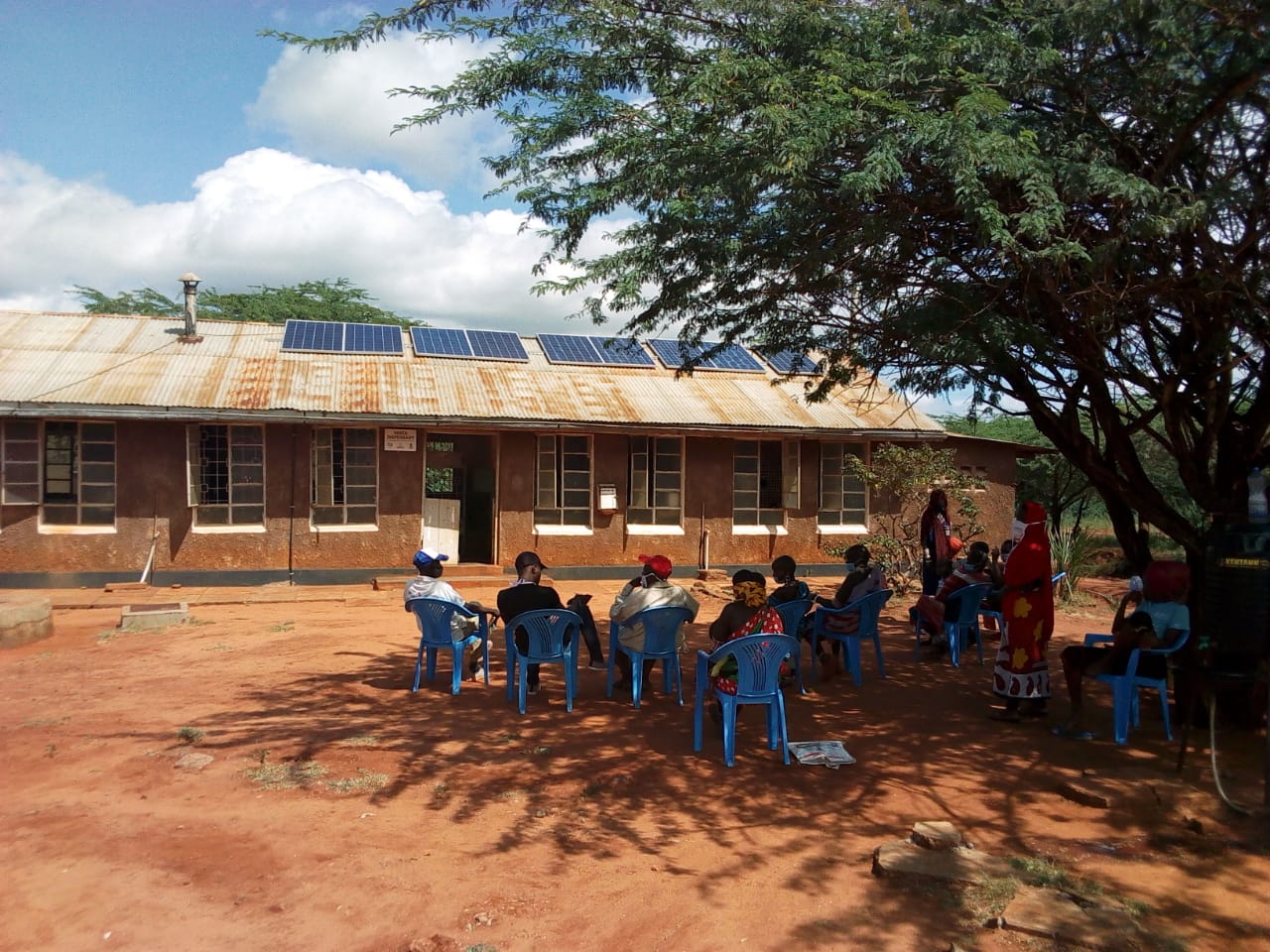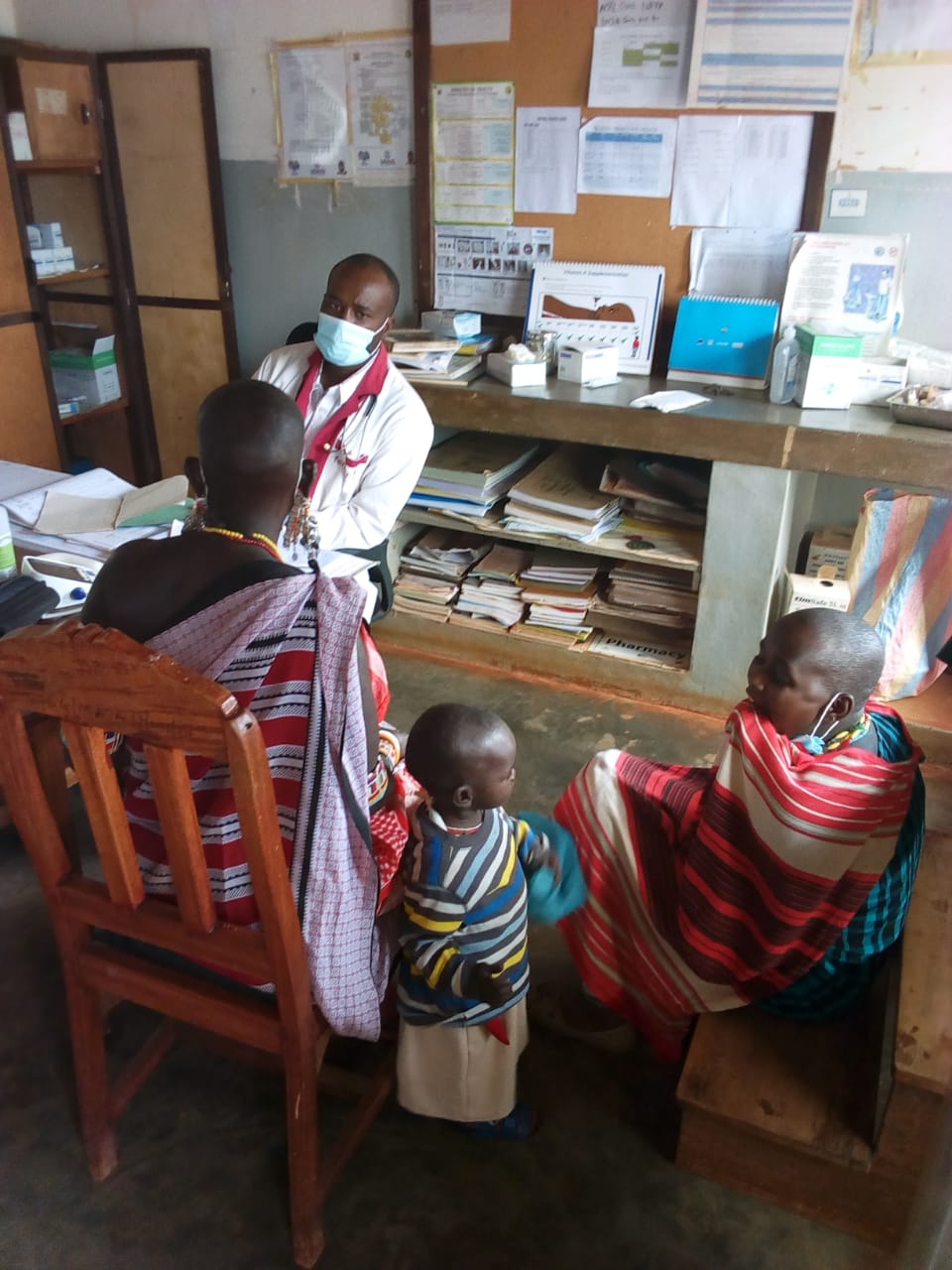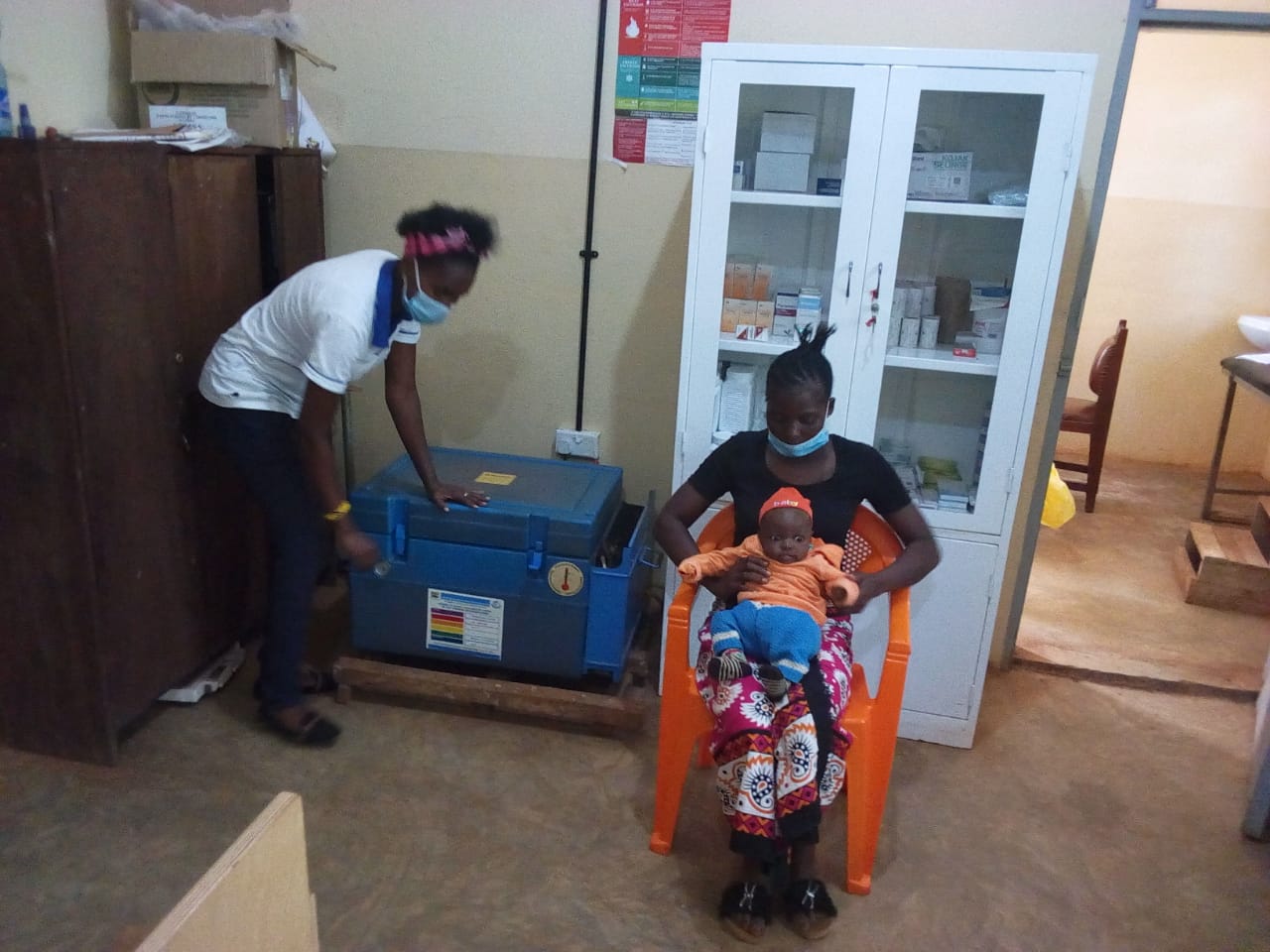Solar power improves patient outcomes and helps save lives at rural Kenyan health clinics
Falling ill in places where there is no access to modern healthcare facilities can be a truly frightening experience. This is the predicament faced by much of the rural population across sub-Saharan Africa where local clinics are frequently unable to provide adequate diagnostic and treatment services due to unreliable power supply.
Mata dispensary is a small clinic near the town of Taveta in southern Kenya. Scattered across villages in the surrounding countryside, the local population of approximately 5000 people are reliant on its medical facilities which include a laboratory, a pharmacy, consultation rooms and a maternity ward.
Like many other rural clinics, Mata dispensary long had to contend with power outages, some lasting up to several days, because their grid connection was so erratic. Service provision at the clinic was often severely affected as a result, making it difficult to properly attend to emergency cases or deliver babies safely without electricity for lighting and equipment. On the maternity ward, nurses had to tend to mothers in labour using flashlights and phone torches and were unable to power life-saving machines such the oxygen system or heart-rate monitors in case of complications. Nursing officer Timothy Munuve, who has worked at the Meta Dispensary for three years says,
The lack of power causes a direct threat to the lives of mothers and their babies. It was always distressing for mothers to give birth when the power went out.
Patients were put further at risk as clinic staff could not adequately sterilise the equipment.
Non-emergency healthcare suffered too: cold storage for vaccines and reagents is crucial as vaccines usually spoil quicky without adequate refrigeration. Moreover, the outages left the clinical staff unable to access digital patient records, compromising diagnosis and treatment.
Whilst there is a better-equipped hospital twenty kilometres away in Taveta, it is an arduous journey for poor and sick patients, especially when the dirt road into town becomes impassable during rainy season. The delay in diagnosis and treatment can also worsen the prognosis and have fatal consequences for some patients.
In 2020, thanks to Project Jua (the energy access programme funded by OVO Energy's charity arm, OVO Foundation and implemented by Energy 4 Impact), the Mata dispensary got access to solar power. Consistent power supply transformed the quality of care the clinical staff were able to provide, as Timothy Munuve explains, relating the story of a patient who turned up at the clinic one day with body aches and a severe headache.
Thirty year-old Jackline arrived at the clinic in a very weak condition, feeling too sick to report to work. I immediately took blood and stool samples to be analysed by the laboratory technician using an electric centrifuge and microscope. The results were available within fifteen minutes.
Jackline was diagnosed with a digestive tract bacterial infection called H. Pylori which can cause stomach ulcers. The swiftness of the diagnosis in turn improved her treatment outcome: given a diet plan and two weeks of medication, Jackline quickly recovered.
Through Project Jua, Energy 4 Impact worked with local solar providers to install PV systems at 50 health clinics in weak- or off-grid regions across the country. As the quality and consistency of care provided by the clinic is contingent on solar power supply, rigorous maintenance procedures are essential: the solar suppliers provide reactive maintenance by troubleshooting any reported faults and Energy 4 Impact provides preventative maintenance by employing local electricians to conduct regular checks. Data on energy consumption is also collected through remote monitoring to ensure that the load is not too high or the battery drained too low as either scenario could endanger power supply. The project has also extended solar energy provision to 250 schools with the overall aim of bringing life-changing benefits to the populations of five marginalised Kenyan counties with low electrification rates: Turkana, Kwale, Taita-Taveta, Kilifi and Isiolo.
Although Mata is a small rural clinic, a well-equipped and fully operational laboratory is essential to its work, as staff conduct an average of 30 lab tests a day, with patients usually tested for more than one ailment in course of diagnosis. Laboratory testing is at the heart of treatment and getting swift and accurate results is particularly important in a region like southern Kenya where diseases such as malaria and brucellosis, caused by consumption of raw meat and unpasteurised milk, are so prevalent. Both diseases can be easily detected through a blood test, but samples need to be passed through an electric centrifuge, a dry heat steriliser and then an electric microscope.
Duncan Mwadime, the clinical officer at Mata dispensary says,
Solar power has not only allowed our clinic to improve diagnosis and treatment, it has enabled us to do more preventative work to stop the spread of common infectious diseases. The store of vaccines in our fridges allows us to provide enhanced vaccination against measles, BCG, rota virus, polio, pneumococcal and yellow fever. Our staff are thrilled that we can now play a greater part in improving the overall health of our community.



